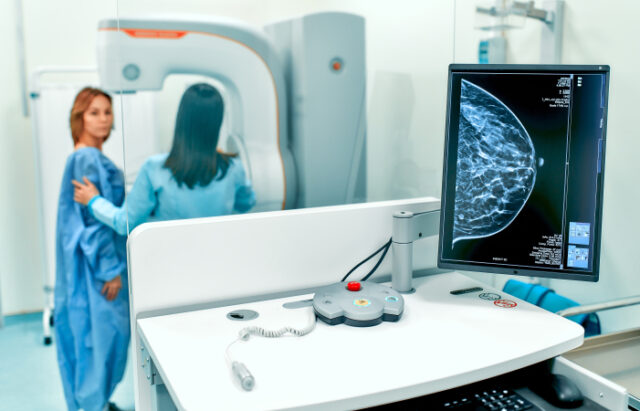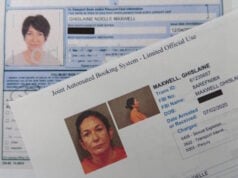
October is Breast Cancer Awareness Month. Women are being encouraged to get their annual breast cancer screening because screening can save lives.
But what if your mammogram shows that you have dense breasts?
Dr. Christine Klassen, a Mayo Clinic Breast Clinic physician, has more on what it means to have dense breasts.
Starting at age 40, Mayo Clinic encourages women to get their annual mammograms. Sometimes you may get an unexpected result like being told you have dense breasts.
“Breast density is a radiologic term, and it’s specifically referring to how the breast tissue appears on a mammogram,” says Dr. Klassen.
The breast tissue is made up of fibrous tissue, glandular tissue and fatty tissue. Dr. Klassen says dense breasts may make screening more difficult.
“The dense breast tissue on a mammogram is when we see a lot of that glandular and supportive tissue, and not so much of the fatty tissues.”
Breast density is assigned one of four levels ― A, B and C, and D, which is extremely dense.
“The higher-density group has about four times the risk of a cancer, compared to the lower-density group,” she says.
Annual mammograms remain an important screening tool. Dr. Klassen says additional testing may help.
“We do think that there’s some benefit to getting the 3D mammogram, or the mammogram with tomosynthesis, which helps radiologists scan through the field of the breast and get a better sense for what’s a true mass.”
Related posts:
- “Mayo Clinic Minute: Why breast cancer screening is important.“
- “Clearing up confusion over breast cancer screening recommendations.”
- “Mayo Clinic Q and A: Immunotherapy and breast cancer.“
The post Mayo Clinic Minute: Determining if you have dense breasts appeared first on Mayo Clinic News Network.
“Courtesy: Mayo Clinic News Network.”
Republished with permission[/vc_message]
Disclaimer
Artificial Intelligence Disclosure & Legal Disclaimer
AI Content Policy.
To provide our readers with timely and comprehensive coverage, South Florida Reporter uses artificial intelligence (AI) to assist in producing certain articles and visual content.
Articles: AI may be used to assist in research, structural drafting, or data analysis. All AI-assisted text is reviewed and edited by our team to ensure accuracy and adherence to our editorial standards.
Images: Any imagery generated or significantly altered by AI is clearly marked with a disclaimer or watermark to distinguish it from traditional photography or editorial illustrations.
General Disclaimer
The information contained in South Florida Reporter is for general information purposes only.
South Florida Reporter assumes no responsibility for errors or omissions in the contents of the Service. In no event shall South Florida Reporter be liable for any special, direct, indirect, consequential, or incidental damages or any damages whatsoever, whether in an action of contract, negligence or other tort, arising out of or in connection with the use of the Service or the contents of the Service.
The Company reserves the right to make additions, deletions, or modifications to the contents of the Service at any time without prior notice. The Company does not warrant that the Service is free of viruses or other harmful components.












